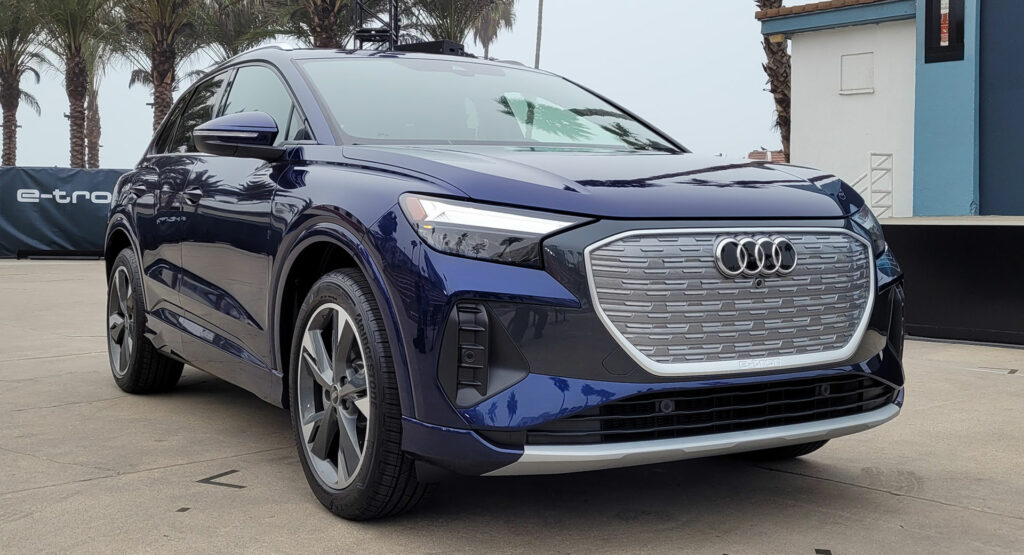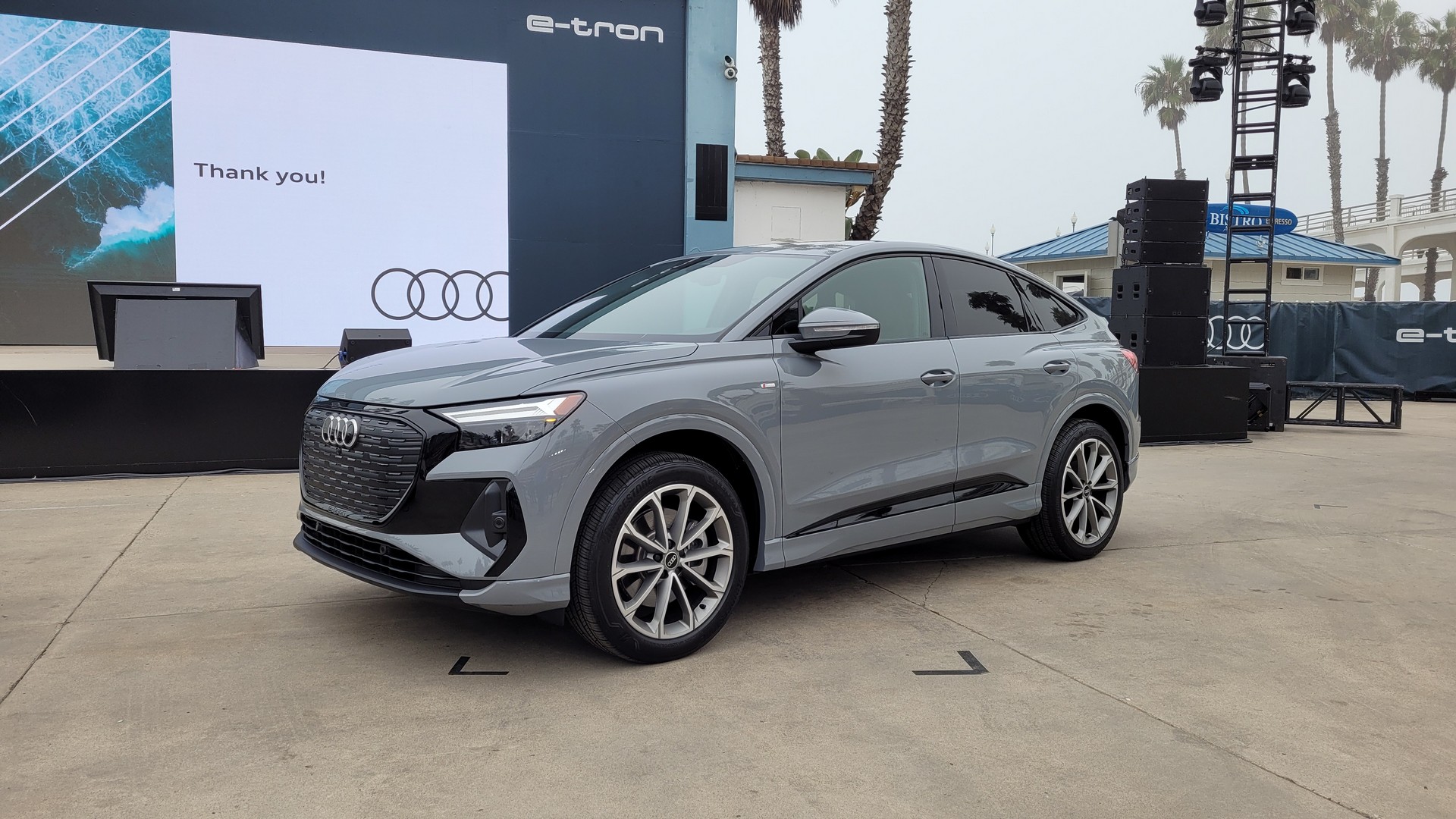Audi Sees EV Range Becoming Less Important In The Future As Charging Infrastructure Improves

Audi has the largest EV lineup in America as the automaker already offers five different models including the recently launched Q4 e-tron and Q4 e-tron Sportback.
We’ll have more to say about the crossovers in our upcoming review, but we recently talked EVs with Audi of America President Daniel Weissland. During a wide-ranging discussion, we asked if Audi sees 300 miles (483 km) of range as being the gold standard like some competitors.
While Weissland noted 300 miles (483 km) of range is “good,” he said the ideal distance varies by segment. In particular, there are cost and weight benefits to using smaller and lighter battery packs in certain models, such as those focused on affordability.
Also Read: New Audi E-Tron Prototype Unveiled, Previews Upcoming Facelift
Audi officials also believe range will become less important in the future as charging infrastructure improves. This makes a lot of sense as there are well over 100,000 gas stations in the United States, but only around 6,000 DC fast charging stations. It’s also worth noting that charging technology continues to improve and this means we can expect shorter recharging times in the future.
Speaking of range, Audi said premium electric vehicle buyers only travel around 30 miles (48 km) per day. The company added that 98% of single-trip journeys are less than 50 miles (80 km), so EVs such as the Q4 e-tron should be more than suitable for the vast majority of drivers as it offers up to 265 miles (426 km) of range.
While Audi has explored hydrogen fuel cells in the past, officials said they don’t make much sense, at this point, due to their high price. It’s also worth mentioning that hydrogen refueling stations are virtually non-existent outside of California, and this is why models such as the Hyundai Nexo and Toyota Mirai are only available in the Golden State.
The company left the door open to hydrogen-powered models in the future, but Audi is focused on battery electric vehicles and is slated to have a fully electric lineup – outside of China – by 2033.
Picture credits: Michael Gauthier for CarScoops
The Auto World


Comments
Post a Comment